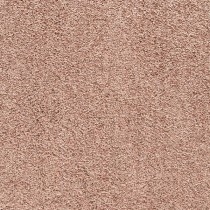Nylon carpet FAQs: cleaning options, pet proofing and costs
In this FAQ guide:
- What is nylon?
- Why is nylon good for carpets?
- Are nylon carpets easy to clean?
- Do nylon carpets get mouldy if they become damp?
- I’ve heard that static is a problem with nylon carpets? Is this true?
- Are nylon carpets suitable for pets?
- Are nylon carpets better than polyester carpets?
- Are nylon carpets better than wool carpets?
- Can I dye a nylon carpet?
- What is BCF nylon carpet?
- Are nylon carpets safe?
- How much does nylon carpet cost?
What is nylon?
A synthetic (man-made) plastic invented in the 1930s, nylon is produced by putting natural materials found in coal or petroleum through a series of chemical processes. The resulting plastic is then used to manufacture all kinds of products—clothes, food packaging, toothbrushes, car seatbelts and many, many more.
Nylon is used so widely throughout the world because it’s versatile, reliable and strong.
Why is nylon good for carpets?
The hardest of all man-made carpet fibres, nylon is a popular material for carpets because of its resilience. Nylon carpets will resist wear and tear over time, withstanding heavy foot traffic and hiding dust and other dirt in their fibres. The way the pile is twisted in the manufacturing process means the carpets are good at keeping their shape—they won’t appear bent, crushed or indented by furniture.
Are nylon carpets easy to clean?
Yes, and to keep them looking their absolute best you should vacuum at least once a week—and as often as every day in rooms or areas that get the most footfall (entrances, hallways and so on), particularly if you have pets. This will stop soil and dirt particles from getting embedded too deeply in the pile. You should use a vacuum with a head you can raise so it’s only just touching the surface of the carpet—any lower and the carpet will turn fuzzy.
As nylon carpets stain more easily than other synthetic materials, you should consider having yours treated with special stain-resistant chemicals before it’s fitted. This protects against stains and other accidental spillages.
Our guide to cleaning and maintaining your carpet tells you everything you need to know about keeping your nylon carpet looking as good as new, including which methods work best and which you should avoid altogether.
Do nylon carpets get mouldy if they become damp?
Nylon carpets are resistant to moisture, so they won’t turn mouldy or be affected by mildew.
I’ve heard that static is a problem with nylon carpets? Is this true?
Unfortunately, yes. The properties of nylon are such that friction (i.e. you walking across the carpet) causes the fibres to build up a static charge. Through that contact, the charge transfers to your body, so when you touch a metal object like a doorknob, which conducts electricity, you get a slight shock.
To get around this problem, most manufacturers treat their nylon carpets with an anti-static chemical which prevents the static charge from accumulating.
Are nylon carpets suitable for pets?
Nylon carpets are very durable and will withstand the wear and tear that comes with having pets in the house. They’re also easy to clean. A lot of pet owners are put off laying carpet because they can be quickly ruined by claws, hair and so on, but nylon carpets are particularly well suited to households with pets.
Although some new carpets give off fumes for a while after they’ve been fitted, nylon carpets don’t. This means that it shouldn’t affect your pet’s health or stimulate any allergies your pet might have.
Click here to read our guide on pet-proofing your carpet.
Are nylon carpets better than polyester carpets?
If you’re not having to worry about cost, nylon just pips polyester in terms of its general durability. However, polyester carpets are exceptionally resistant to stains, and you’ll be able to remove severe stains such as ink providing you use the correct carpet cleaner.
Are nylon carpets better than wool carpets?
Wool carpets tend to be considered the best carpet you can buy, and are more expensive as a result. Wool and nylon share similar characteristics: they’re water-repellent, hard-wearing, easy to clean and good at holding their original shape. Ultimately, it comes down to your personal preference and budget.
Can I dye a nylon carpet?
Yes. The natural make-up of its fibres means a nylon carpet can absorb dye really effectively.
What is BCF nylon carpet?
There are generally two types of yarn—staple and BCF (bulk continuous filament). The difference comes in how they’re produced.
Staple yarns are made by twisting short lengths of fibres together to produce long strands of yarn. This same process is used to create woollen yarn. Staple yarns will shed some fibres for a short time once the carpet is laid, before they settle.
A BCF carpet consists of yarn made from one long, continuous strand of fibre that’s twisted together. This yarn is made at the same time that the nylon itself is manufactured, rather than being made out of nylon (or any other synthetic fibre) later.
Are nylon carpets safe?
Because of how man-made fibres are produced—and how they’re chemically treated to protect against static, bacteria, stains and so on—brand-new carpets can release a chemical smell. This has no effect on most people but in some it can cause headaches and nausea. The smell usually goes away after 72 hours.
How much does nylon carpet cost?
The table below shows the nylon carpets available from United Carpets & Beds:
|
Product |
Image* |
Cost (per m2) |
|---|---|---|
 |
£71.74 |
|
|
Satino Velveteen Deep Pile Saxony Carpet
|
 |
£71.74 |
|
Satino Silken Deep Pile Saxony Carpet
|
 |
£71.74 |
|
Satino Smooth Deep Pile Saxony Carpet
|
 |
£71.74 |
|
Satino Glisten Deep Pile Saxony Carpet
|
 |
£78.92 |
|
Satino Softness Deep Pile Saxony Carpet
|
 |
£78.92 |
*All carpets come in a range of colours
If you are looking to find out more about the costs of carpets and if there is finance options available, visit our guide: carpets costs and finance options
Related content
Buying and fitting a new carpet










